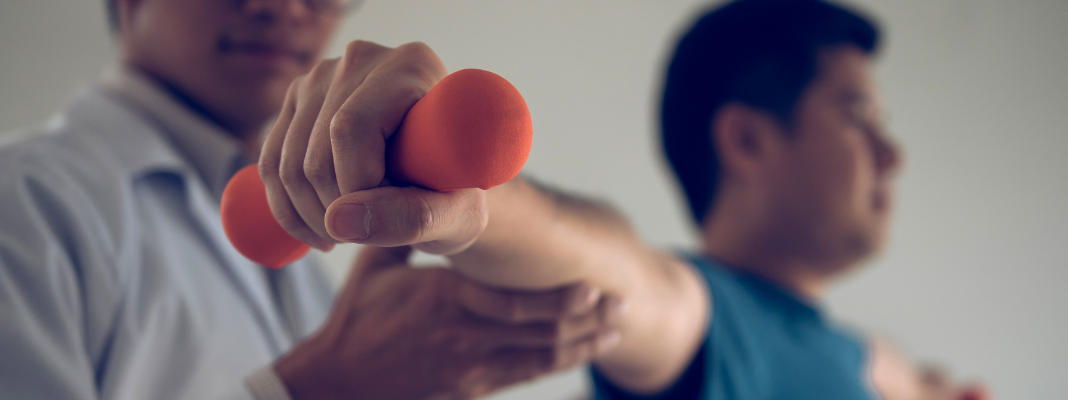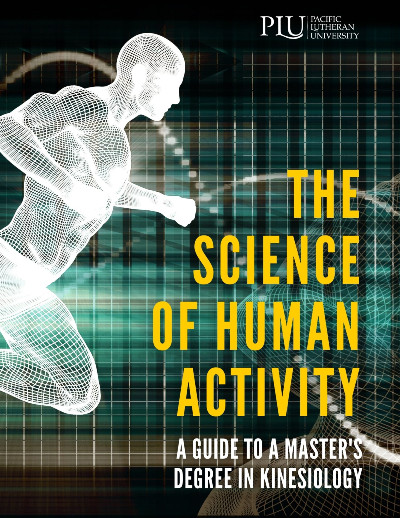What Can You Do with a Master’s in Kinesiology? (11 Kinesiology Careers to Choose From)

A master’s degree in Kinesiology will enhance the skill set of novice and experienced practitioners in exercise, sport, performance and health related careers. Let’s look into some kinesiology careers you can choose from.
Kinesiology is the science of human movement. Kinesiology studies the principles of movement and investigates the complexity of the mechanical, physiological, and psychological components of movement. The study of kinesiology involves deep understanding of various biological systems as well as behavioral theories.
Many people are introduced to the concept of kinesiology through a sub-field like physical therapy or sports medicine, but kinesiology is the larger umbrella term for the theory and practice of human movement.
Let’s talk specifically about options for jobs with a master’s in kinesiology and what responsibilities and job outlook are projected for these various kinesiology careers.
11 kinesiology careers you can pursue once you obtain a master's in kinesiology:
So, what can you do with a master’s in kinesiology? There are many reasons to obtain a Master of Science in Kinesiology, but here are just a few of the jobs you can get with a master’s in kinesiology.
1. Exercise Physiologist—design and develop exercise programs for individuals recovering from illness and injury. In the Seattle-Tacoma area specifically, the annual mean wage for exercise physiologists is $52,000.
2. Athletic Trainer—work with athletes, individuals, or groups and with other medical professionals to prevent, treat, and rehabilitate injuries in settings like schools, colleges, professional sports, clinics, hospitals, and the military. Athletic trainers in Washington state make an annual mean wage of $54,000.
3. Exercise Trainers and Group Fitness Instructors—work with athletes, individuals, or groups in gyms, health clubs, and wellness centers to meet fitness goals, including providing training programs, personalized coaching, and exercise modifications based on need. Exercise trainers in Washington state make an annual mean wage of $40,000. Employment for this occupation is expected to grow 19% in the next eight years, much faster growth than the average for all occupations.
4. Mental Performance Consultant—develop strategies to help clients (like athletes, performing artists, executives, military personnel) create mental and life habits that allow them to access peak performance in difficult conditions.
5. Physical Education Instructor—teach principles of healthy movement and physical fitness to students in educational settings.
6. Sport Psychologist—use mental health techniques and principles of psychology to help athletes optimize performance, meet fitness goals, or recover from injury.
7. Strength and Conditioning Coach—develop fitness plans for athletes designed to promote long-term muscle health, natural movement, endurance, and mobility and work alongside other coaches to monitor athlete health and performance.
8. Kinesiology Research Lab Assistant—conduct experiments, develop new biomechanical prototypes, and contribute to ongoing research and studies in the field of kinesiology.
9. Professor of Kinesiology—conduct research, study, and teach principles of kinesiology to the next generation of practitioners.
10. Occupational Therapist—help patients regain or develop the ability to perform everyday tasks, providing ongoing and often long-term support to those with mental or physical disabilities. The annual mean salary for this position in the Seattle-Tacoma area is $94,000.
11. Recreational Therapist—incorporate health care and movement goals into daily, recreational activities, helping patients recover health and confidence from physical and or mental disability through leisure activities and community engagement. The annual mean salary for this occupation in the Seattle-Tacoma area is $60,000.
Note: All information regarding salary and demand (when available) is based on numbers from the Bureau of Labor Statistics (BLS).
Thinking about getting a master’s in kinesiology? Connect with PLU today!
Note: Read more about the Master of Science in Kinesiology on our MSK Blog.
Ranked by Niche as the top Kinesiology department in Washington state and the Pacific Northwest, the Master of Science in Kinesiology at Pacific Lutheran University combines a rigorous academic experience with real-world, impactful applications designed to address critical gaps in kinesiology training and practice — read more about the learning outcomes below!
- Flexible Program – may be completed in as few as 14 months, or over the course of 26 months. Classes occur in the evenings and are a mix of traditional and hybrid in design.
- Theory to Practice Focus – coursework focuses on building an evidence-based practice through rigorous coursework applied to real world situations. All students complete an applied project as part of the program.
- Mentorship – all students are assigned a faculty mentor who also serves as lead advisor for the applied project.
- Inclusive – two required courses examine issues of diversity, justice and inclusion in order to inform how we do our work and how we can best serve a diverse population.
- Career Enhancing – designed to serve high growth professions and to enhance the skill set of novice and experienced practitioners in exercise, sport, performance and health related careers.
If you are interested in learning more about joining a community of kinesiology experts at PLU, we encourage you to schedule a one-on-one phone appointment with us! You can also request more information or sign up for an online info session. We look forward to helping you achieve your career goals.



